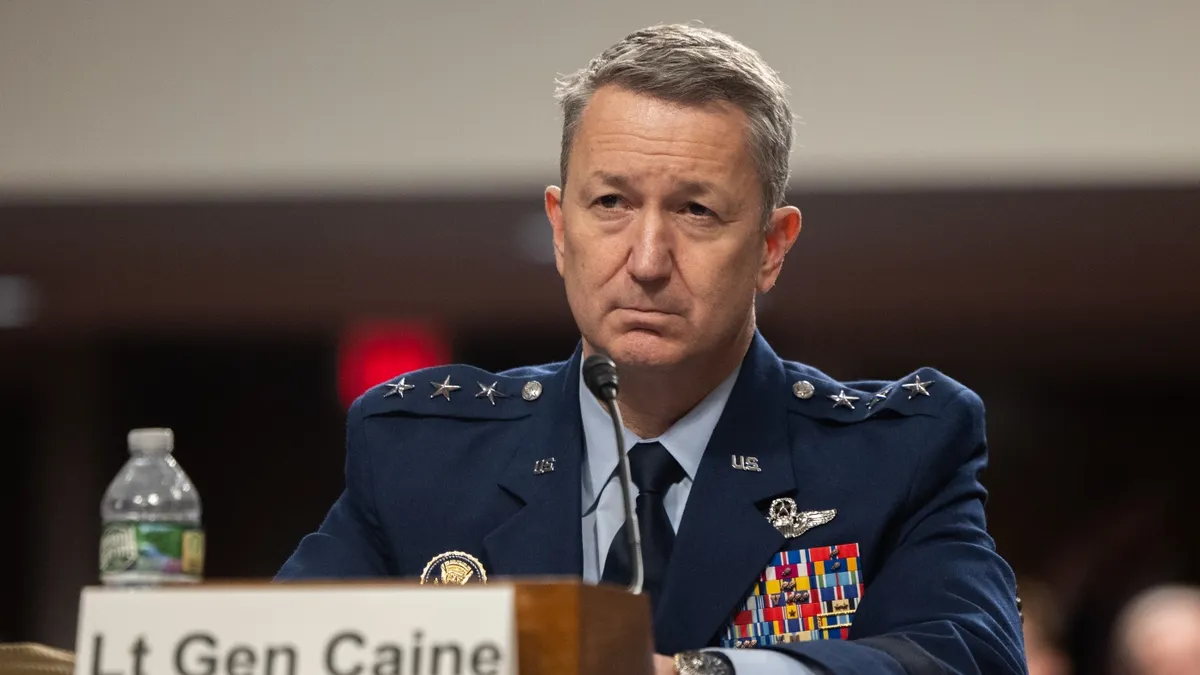
Retired Air Force Lt. Gen. John Dan Razin Caine has officially been confirmed as the chair of the Joint Chiefs of Staff, following a pivotal vote in the Senate that took place in the early hours of Friday. The Senate approved Caine’s appointment with a vote of 60-25, right after 2 a.m., just before adjourning for a two-week recess. This confirmation comes just over six weeks after President Trump made headlines by abruptly firing Caine’s predecessor, Air Force Gen. Charles Q. Brown Jr., in what many Democrats viewed as part of a broader shakeup at the Pentagon.
While the decision to appoint Caine raised eyebrows among some Democrats, Republicans rallied for his swift confirmation, highlighting the ongoing military buildup by the Chinese Communist Party and other adversaries uniting against the United States. Senator Roger Wicker (R-Miss.), chair of the Senate Armed Services Committee, emphasized the urgency of having the highest-ranking military officer in place, asserting that President Trump should not face any delays in receiving expert military advice.
Caine’s confirmation positions him as the nation’s highest-ranking military officer and principal military adviser to the president, the secretary of defense, and the National Security Council. His extensive background as a career fighter jet pilot includes patrolling the skies above Washington, D.C., immediately following the 9/11 attacks. He has also served in the Middle East during operations against the Islamic State and held a significant role at the CIA.
Despite his impressive 34 years of military experience, Caine did not meet all the legal requirements typically necessary to ascend to the role of Joint Chiefs chair. However, the president possesses the authority to waive these requirements when it's deemed necessary for national security. Interestingly, prior to his nomination in February, Caine was relatively unknown in Washington; sources suggested that some officials had to search his name online to familiarize themselves with him.
During his confirmation hearing, Caine expressed a desire to earn the trust of both senators and the American public. “If confirmed, I'll continue the traditions and standards of my oath of office and my commission as a nonpartisan leader who will always strive to do the right thing,” he stated, demonstrating his commitment to impartial military leadership.
Caine most recently served as the associate director for military affairs at the CIA from November 2021 until his retirement in December 2024. To assume the chair position, he had to be reinstated to active service and promoted to a four-star general. His military biography notes that he was commissioned in 1990 through an ROTC program at the Virginia Military Institute in Lexington, Virginia. Caine primarily served as an F-16 fighter pilot and logged over 150 combat hours. Notably, he was one of the pilots deployed to safeguard Washington, D.C., on September 11, 2001, marking the first time fighter jets were stationed over the nation’s capital.
Reflecting on that day, Caine recalled the gravity of the situation, stating, “I remember telling my wingman, ‘Don’t shoot anybody. I’ll make the decision,’” underscoring the responsibility he carried during those critical moments.
In addition to his military service, Caine is recognized as a serial entrepreneur and investor. According to his LinkedIn profile, he serves on the advisory board of several venture capital firms and the defense and space exploration company, Voyager. His connections with President Trump date back to 2019, when the former president recounted their first meeting in Iraq at the Conservative Political Action Conference. Trump humorously recalled Caine introducing himself by his nickname, “Razin.”
Caine's nomination followed the controversial firing of Gen. Brown, who was perceived by some as supporting a “woke agenda.” Critics argue that the firings at the Pentagon, including that of several high-ranking officials, may have political motivations, potentially threatening the integrity of the Department of Defense. During his confirmation hearing, Caine committed to standing up against any unconstitutional military orders should they arise. “I think that’s the duty and job that I have,” he affirmed.
As Gen. Caine steps into this influential role, his extensive military background, commitment to nonpartisan leadership, and willingness to confront challenges head-on will undoubtedly shape the future of the U.S. military landscape.